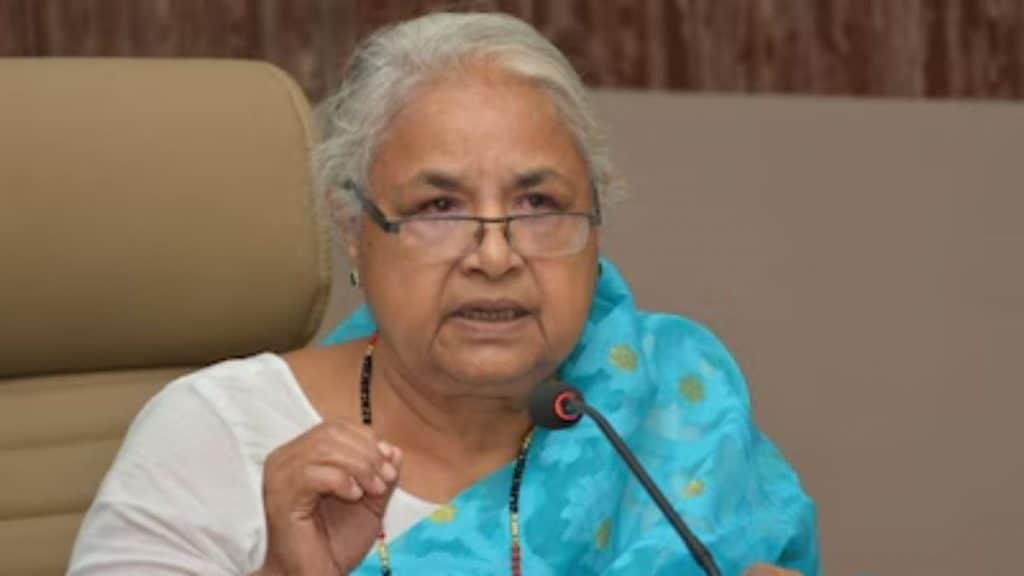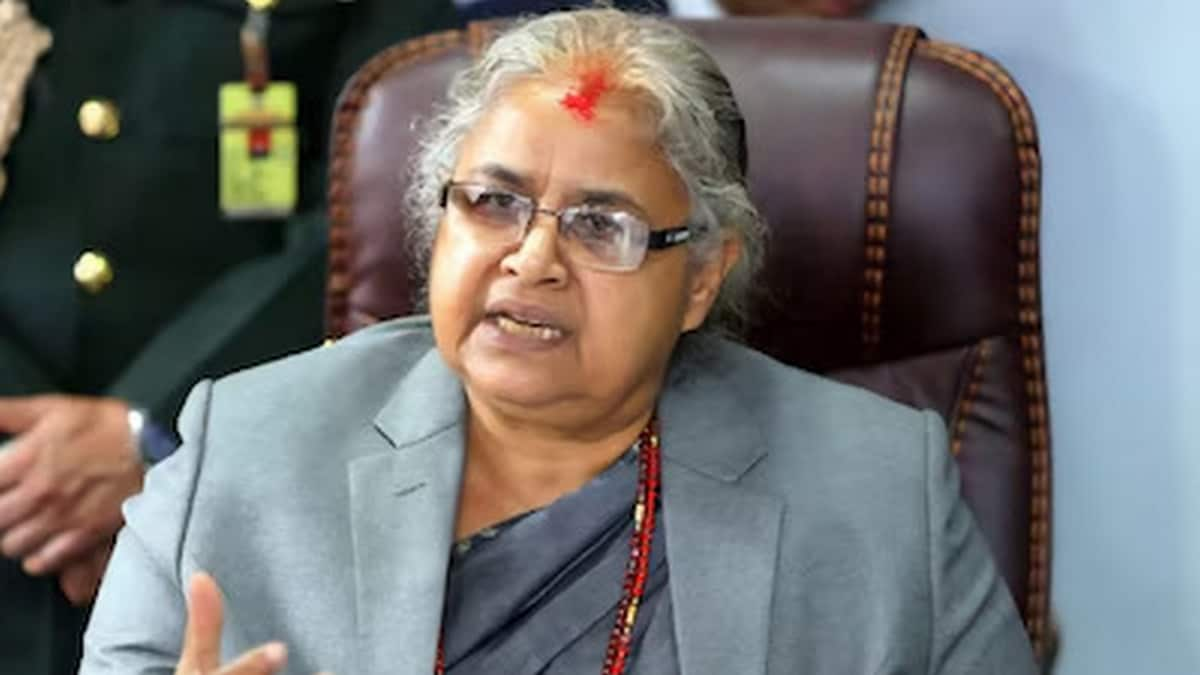Karki, 73, has been backed by the Gen Z protesters to lead the interim government following the resignation of Prime Minister KP Sharma Oli. Karki stated that the Gen Z group that led the movement in Nepal trusted her to lead the government for a short period. She is said to have been chosen for her neutrality and credibility.
“Our immediate focus will be something for the young people who died during the protest," she added. She said that the youth voted in her favour. “I have accepted their request to lead the interim government.”
Oli, the four-time prime minister of Nepal, resigned following the ‘Gen Z’ protests that left at least two dozen people, including three policemen, dead. The youth revolted after the government banned two dozen social media apps popular with millions of people. However, this was just the final straw for a country fed up with corruption, wealth inequality, and lack of opportunity.
Follow all live updates on Nepal protests here.
The Gen Z protesters will now meet the Nepal army chief, with the proposal pending wider demands, Advocate Raman Kumar Karna, who is Secretary of Nepal's Supreme Court Bar Association, said on Wednesday.
But what do we know about the 73-year-old?
Let’s take a closer look.
Who is she?
Karki was born in Nepal’s Biratnagar – the country’s fourth-largest city and an industrial powerhouse. She earned her Bachelor of Arts (BA) from Biratnagar’s Mahendra Morang Campus in 1972. She then studied Political Science at Banaras Hindu University (BHU) in 1975 and completed a Law degree at Tribhuvan University in 1978.
Karki began her legal practice in March 1979. Before becoming a senior advocate in 2007, she worked as an assistant teacher at Mahendra Multiple Campus, Dharan, in 1985.
Karki was appointed Ad-Hoc Justice at the Supreme Court in January 2009. She was promoted to Permanent Justice in November 2010. Karki became Chief Justice of Nepal’s Supreme Court in July 2016 and held the post until June 2017.
As a jurist, she was known for her zero tolerance towards corruption. She was noted for judgments such as allowing women to pass on their citizenship to their children, a right previously reserved only for men.
She is the first and only woman to serve as Chief Justice of Nepal’s Supreme Court. At the time, three of the country’s top posts – President, Speaker of Parliament, and Chief Justice – were all held by women. Karki succeeded her predecessor Kalyan Shrestha.

Sushil Karki was appointed Ad-Hoc Justice at the Supreme Court in January 2009. She was promoted to Permanent Justice in November 2010. Karki became Chief Justice of Nepal’s Supreme Court in July 2016 and held the post until June 2017. Image courtesy: X
During her time as Chief Justice, Karki passed several landmark rulings, including jailing a Nepalese minister, Jaya Prakash Gupta, for corruption. She was also part of the bench that upheld the conviction of former Inspector General of Police (IGP) Om Bhakta Rana in a high-profile corruption case linked to Nepal’s peacekeeping mission in Sudan. She also ruled on the property rights of former royal family members.
Unfortunately, her tenure was marred by an impeachment motion filed by lawmakers who claimed she was biased and accused her of interfering with the executive's powers.
This followed the Supreme Court’s overruling of a government decision regarding the appointment of a police chief, where the court found that seniority had been unfairly overlooked. Karki was automatically suspended after the motion, signed by nearly half the members of parliament, was registered. Then Deputy Prime Minister Bimalendra Nidhi, who was also Home Minister, resigned in protest of the impeachment.
The events unfolded just a month before Karki’s retirement. However, the impeachment was withdrawn as it failed to secure the required two-thirds majority. Public outrage and an interim Supreme Court order forbidding parliament from acting also contributed to the motion’s collapse.
Karki has written a book on gender equality and is a member of women’s and human rights organisations. She married Durga Prasad Subedi, a prominent youth leader of the Nepali Congress. They met while she was studying in Banaras.
In July, Karki said in an interview that she still felt nostalgic about BHU. She not only earned a degree there but also learned to dance. Karki mentioned she was offered a job at BHU but her "destiny was different".
How was Karki chosen?
According to reports, those who participated in the marathon meeting insisted that no one with any links to political parties should be involved in selecting Nepal’s leadership.
There are reports that Karki received 31 per cent of the vote compared to Kathmandu Mayor Balen Shah’s 27 per cent.
The Gen Z protesters will now meet the Nepali Army chief, with the proposal pending wider demands, Advocate Raman Kumar Karna, Secretary of Nepal's Supreme Court Bar Association, said on Wednesday.
Karki said that Nepal has always faced challenges. “There have always been problems in Nepal from the past. The situation is very tough now," she said. “We will work together for the development of Nepal. We will try to establish a new beginning for the country."
Hari Phuyal, a senior lawyer and former student of Karki – who began her career as a teacher – said in 2016 that Karki “strongly believes that competent women should be in leadership positions for the emancipation of women".
Karki also spoke about the relationship between India and Nepal. “There is a lot of respect and love for India. India has helped Nepal a lot," she said.
“I have good relations with Indian leaders. I especially want to say, main Modi ji ko namaskar karti hoon (I greet Prime Minister Modi). I have a very good impression of Modi ji," Karki said.














